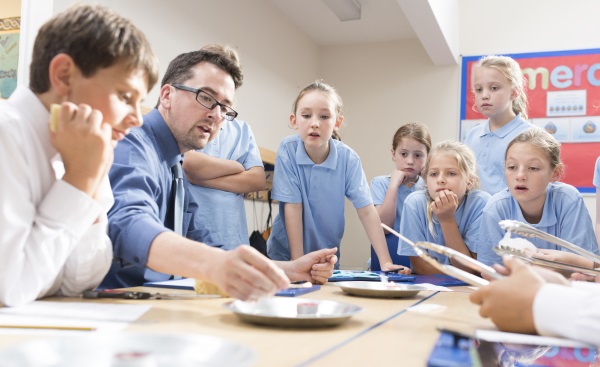A national research study from November 2013 by Dr Matt O’Leary raised questions about the effectiveness of lesson observations in the FE sector. He outlines how little mindsets have changed.

The study, commissioned by the University and College Union (UCU), Developing a National Framework for the Effective Use of Lesson Observation in Further Education, captured the views of thousands of staff working in the Further Education (FE) sector in England and remains the largest and most detailed account of the topic of lesson observation to date, not just in FE but in the English education system as a whole.
The research raised serious questions about the fitness for purpose of graded observation schemes and the extent to which they were able to achieve their purported goals i.e. improve the quality of teaching and raise student achievement.
The report’s overriding message was that not only were such schemes failing to assure and improve teaching quality, but the reductive and punitive ways in which observations were often used was responsible for a catalogue of detrimental effects that were continuing to impede improvements in teacher learning and the educational experience as a whole.
The report triggered debates about the continued use of graded observations across education, led to a growing number of institutions changing their practice and even resulted in a switch in Ofsted’s policy, with the removal of graded lesson observations from their inspection framework.
Yet this shift in policy has not necessarily been matched by a parallel shift in practice in many circles. Many teachers claim that in spite of these developments there has been little change in the mindsets and working practices of many senior leaders and managers in how they view the use and purpose(s) of observation.
This is unsurprising given how engrained the normalised practice of graded observations has become in many institutions over the last few decades.
‘How can we measure and improve quality if we’re not going to grade anymore?’ ‘Even though we’ve switched to ungraded observations, teachers still want to know what grade they’d get, so what’s the point?’ These are just two comments that I repeatedly hear from senior leaders and managers when talking about the use and purpose(s) of observation. Such comments exemplify what I’ve referred to in previous work as ‘normalised behaviour’.
In other words, staff have become institutionalised into associating observation with a performance ranking exercise, regardless of the context or approach. They’re unable and/or unwilling to conceptualise the use of observation outside of a performative context and see an umbilical link between their classroom ‘performance’ and attempts to measure it.
I can understand the ‘reward’ incentive of this for some teachers, though such mentality does little to foster a collegial and collaborative culture in the workplace. I’m not opposed to the notion of competition per se but firmly believe that there is a time and a place for it and observing practice in the classroom is not it.
From a management perspective, there’s undoubtedly an attraction about the reductive nature of attaching a number to a teacher’s performance.
Not only are some senior managers fearful of moving away from graded observations because it would mean casting aside the spurious ‘grade profile’ comfort blanket, that so many of them have formed an emotional attachment to for so long as a means of measuring and managing teacher performance, but more importantly such a move would mean that they’d actually have to get involved in managing and supporting real staff rather than spending all their time managing and manipulating performance data. And I’m not so sure some of them are equipped to do that.
In the case of FE, the divide between what classroom teachers and senior managers do has widened so much that many have become so far removed from the realities of what it means to be a classroom practitioner that they simply don’t have the skills or knowledge to support improvements in teacher learning even if they wanted to.
But don’t despair, there is hope. There are staff out there who have taken advantage of the opportunity to break free from the shackles of performative lesson observations and begun to redefine and reclaim observation as a powerful tool for teacher growth and on which to build sustainable, collaborative communities of teacher learning. And what unites them all is a desire to use observation to support rather than sort teachers!
If you are interested in finding out more, then come along to our event Rethinking Lesson Observations in Birmingham where I’ll be running sessions on:
You can also hear from Joanne Miles on: